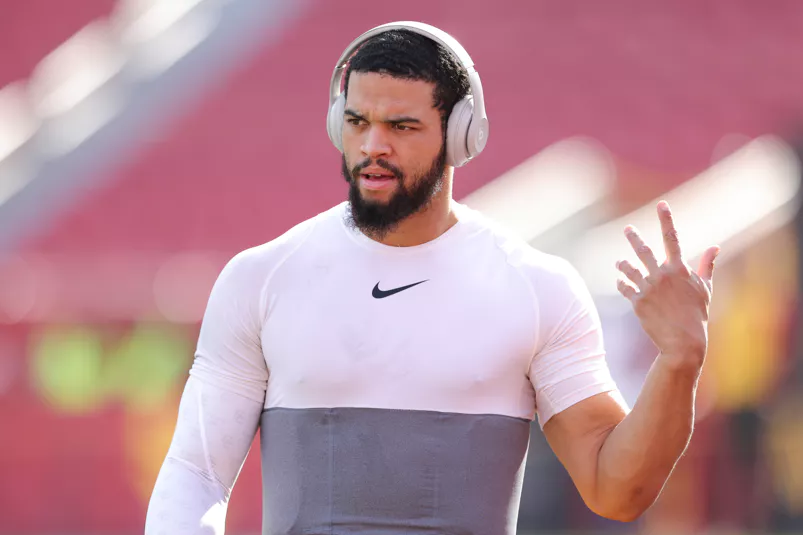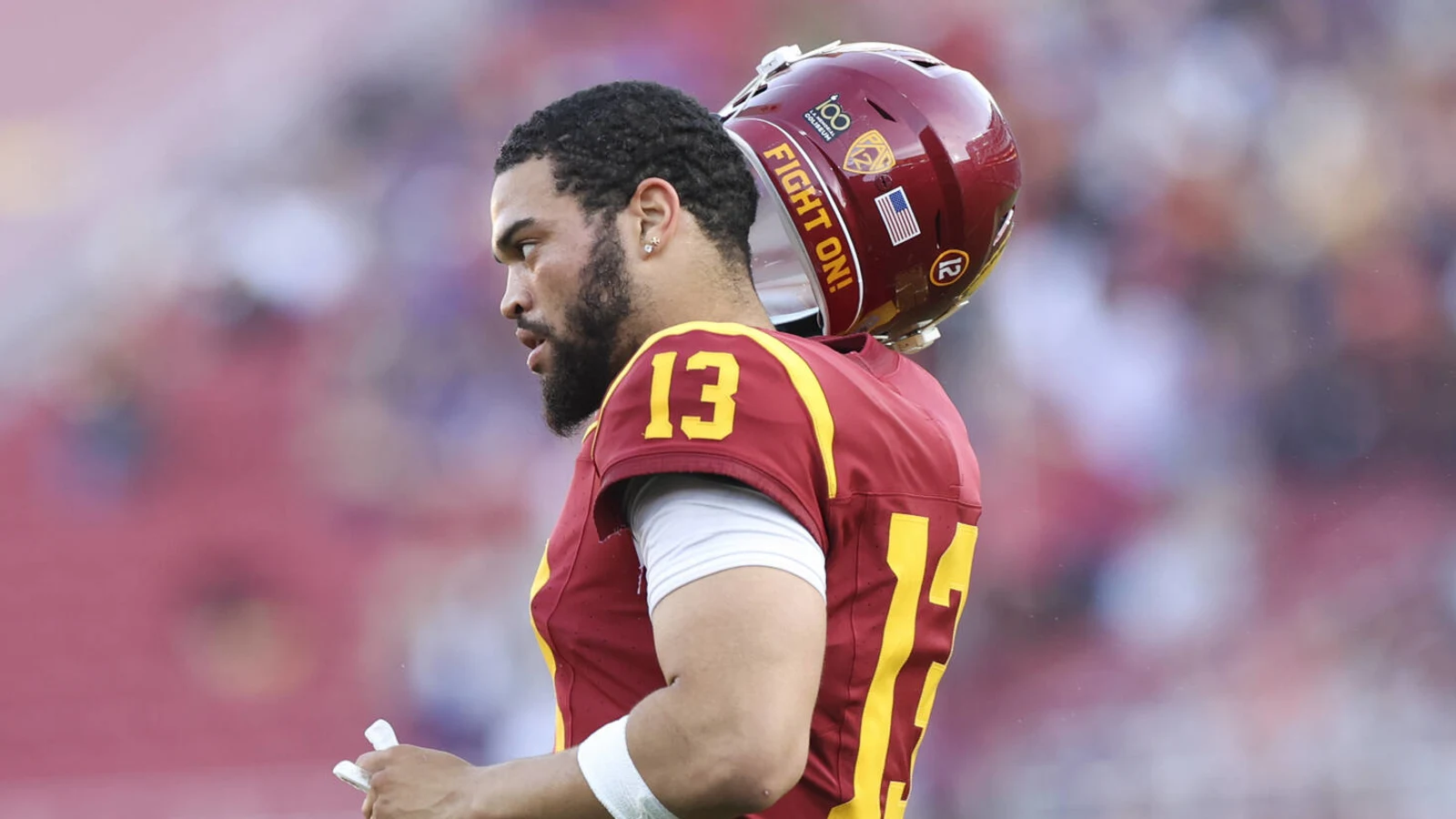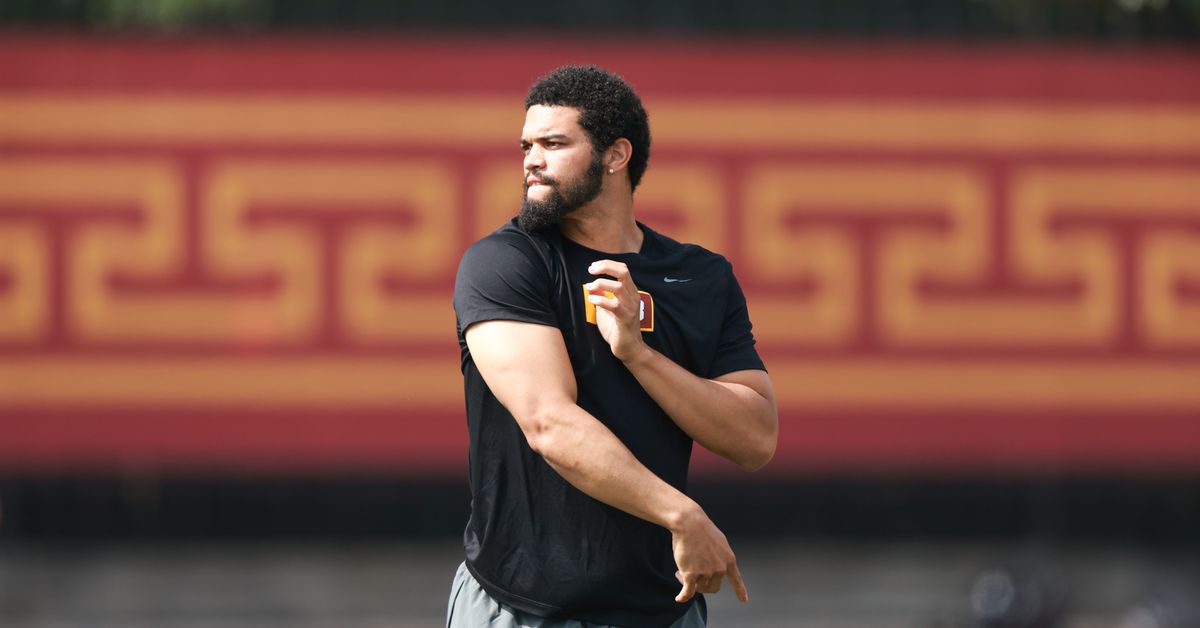Caleb Williams has been groomed for NFL stardom since his early years, rising through the ranks with remarkable talent and skill. Hailing from Gonzaga High School, he quickly became a standout player, earning national recognition as a top-10 recruit and premier quarterback prospect.
His decision to transfer from Oklahoma to USC after his freshman year further solidified his trajectory, leading to a phenomenal college career where he clinched the Heisman Trophy and captured the attention of pro scouts eagerly anticipating his NFL debut.
As the 2024 NFL Draft approaches, all eyes are on Williams, poised to become the first overall pick with the Chicago Bears holding the selection. Throughout the season, he has maintained his status as the top prospect, hailed not only as an exceptional quarterback but potentially a generational talent.

However, despite his undeniable prowess, Williams faces scrutiny in the lead-up to the draft due to unconventional aspects of his personality and demeanor.
Critics have targeted Williams for traits they perceive as non-conforming to traditional notions of toughness and masculinity. Reports highlight his unique expressions such as painting his nails and displaying raw emotions on the field, which have sparked debate among scouts and analysts.
One former NFL scout even drew a controversial comparison, likening Williams to Prince, implying an inherent “weirdness” that raises red flags for some teams.
These criticisms underscore a clash between old-school perspectives on football culture and the emergence of a new generation of players like Williams, who challenge conventional norms. Embracing social media and engaging in cultural discourse, Williams embodies a distinctively Gen-Z approach to fame and self-expression, setting him apart from his predecessors.

Despite the scrutiny, supporters and fans rally behind Williams, celebrating his individuality and drawing parallels to iconic figures like Prince, whose legacy transcends narrow definitions of masculinity. The comparison to Prince receives widespread approval, with many acknowledging the artist’s unparalleled talent and cultural impact, suggesting that Williams could similarly leave an indelible mark on the NFL.
As the draft day draws near, discussions about Williams escalate, with Bears supporters eagerly anticipating the possibility of having a player reminiscent of Prince at the helm of their team. The fervor and anticipation surrounding Williams mirror a broader cultural evolution within football, as diversity and individuality gain greater acceptance.
Whether Williams will confront stereotypes and reshape perceptions of success in the NFL remains uncertain, yet his path hints at a journey marked by fascination and change in professional football.
